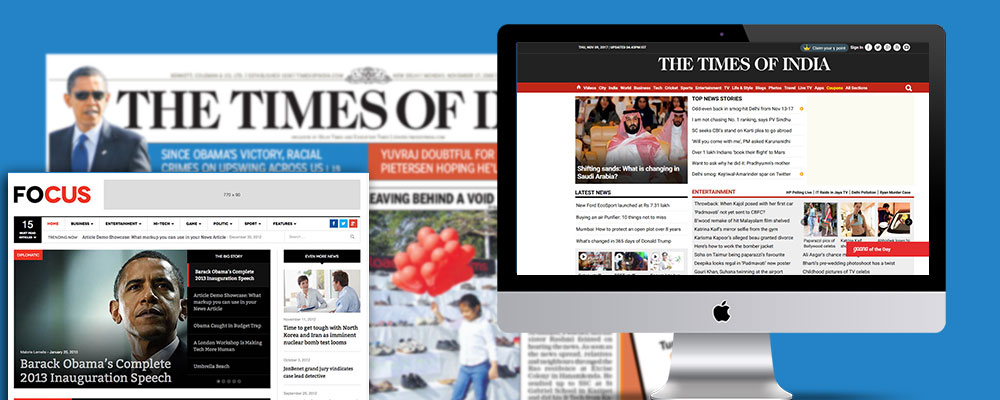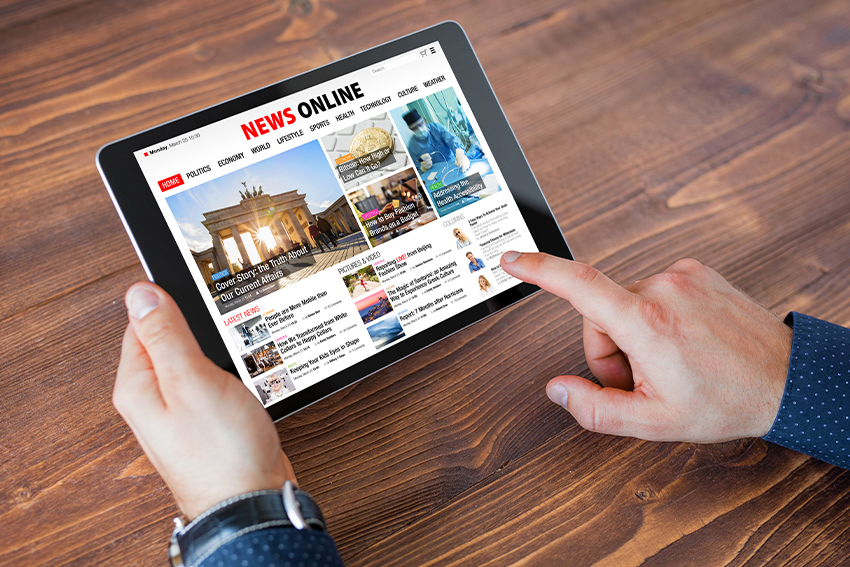The Greatest Guide To International News Online
The Greatest Guide To International News Online
Blog Article
All About International News Online
Table of ContentsLittle Known Facts About International News Online.The Ultimate Guide To International News Online8 Easy Facts About International News Online ExplainedRumored Buzz on International News Online6 Easy Facts About International News Online Shown
The system's name modification took area in July 2023.) Some social networks sites in spite of having reasonably tiny total target markets attract attention for having high shares of users who on a regular basis most likely to the website for information. For instance, approximately half of users on X (53%) get news there. On the various other hand, just 15% of Snapchat customers frequently get information on the app.
, Sept
When asked whether social media is a good or negative point for freedom in their nation, a typical of 57% throughout 19 countries say that it is an excellent thing. In practically every country, close to fifty percent or more state this, with the belief most typical in Singapore, where approximately three-quarters believe social media is a great thing for democracy in their country.
And in the united state, only around a third think social media declares for freedom the tiniest share among all 19 nations surveyed. In 8 nations, those who believe that the political system in their country enables them to have an impact on politics are additionally much more likely to state that social media sites is a good point for democracy.
Those who check out the spread of false information online as a major hazard to their country are much less likely to say that social networks is a good idea for freedom, contrasted with those who watch the spread of misinformation online as either a small danger or not a risk whatsoever.
Little Known Facts About International News Online.
Older adults in 12 countries are much less likely to say that social media is an excellent point for democracy in their nation when compared to their more youthful counterparts. In Japan, France, Israel, Hungary, the UK and Australia, the space between the youngest and oldest age teams is at the very least 20 percent points and ranges as high as 41 points in Poland, where almost nine-in-ten (87%) younger grownups say that social media has actually been a great thing for democracy in the nation and just 46% of adults over 50 state the very same.
Across the 6 issues evaluated, few often tend to say they see no modifications as a result of raised connectivity rather seeing points transforming both favorably and negatively and often both at the exact same time (International News Online). An average of 84% say technological connectivity has made individuals much easier to adjust with incorrect details and reports one of the most among the six issues examined
In many countries, those that assume social media has made it easier to manipulate people with false information and rumors are also much more likely to assume that social media has made people extra informed. When it pertains to politics, the internet and social media sites are generally viewed as disruptive, with a mean of 65% stating that people are now a lot more divided in their political opinions.
The 4-Minute Rule for International News Online
This feeling of hazard is connected to the prevalent belief that individuals today are currently less complicated to adjust with incorrect info and reports thanks to the internet and social media sites. Around fifty percent or more in every nation evaluated shares this sight. And in locations like the Netherlands, Australia more information and the UK, around nine-in-ten see individuals as even more manipulable.
For instance, in South Korea, 90% of those under age 30 claim social media makes people simpler to control, compared to 65% of those 50 and older. (Interestingly, U.S.-focused study has located older adults are most likely to share misinformation than more youthful ones.) Individuals with more education are additionally often much more likely than those with less education to say that social networks has resulted in individuals being simpler to control.

In 2016, for instance, following the U.S. presidential political election, 64% of united state grownups believed totally made-up news had caused a good deal of confusion about the fundamental realities of existing events. At the time, around a 3rd felt that they commonly came across political information online that was entirely composed and an additional half stated they often experienced news that was not totally precise.
Rumored Buzz on International News Online
In Sweden, Japan, Greece and the Netherlands, around eight-in-ten or more share this sight, while in Malaysia, a smaller sized bulk (56%) says the very same. More youthful adults often tend to see social networks making individuals extra educated than older adults do. Older grownups, for their part, don't necessarily see the net and social media sites making people much less educated concerning what's happening in their country; rather, they're somewhat more probable to explain these systems as having little impact on people's this link details degrees.

Report this page